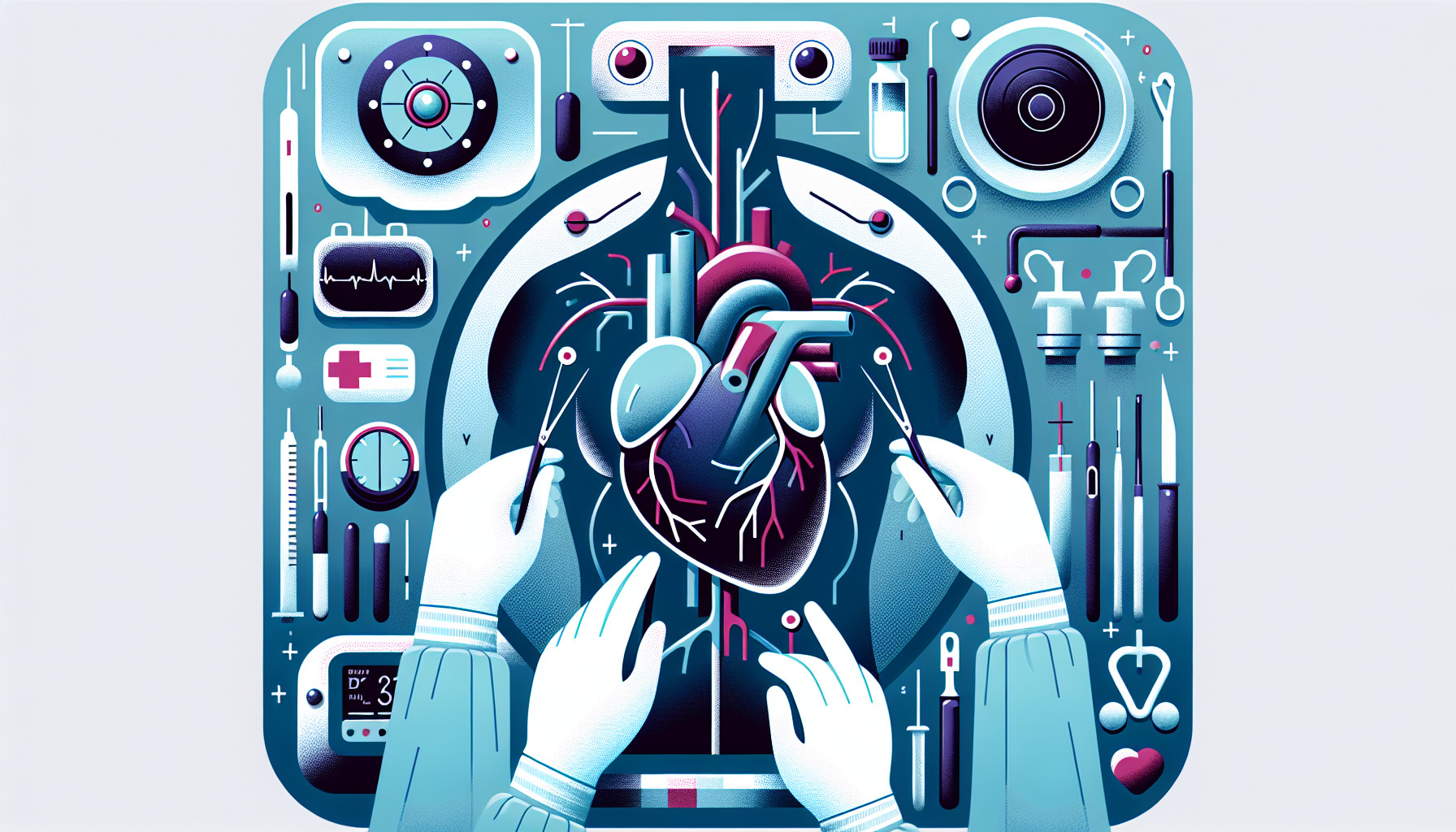Our Summary
This research paper is about an 86-year-old man who underwent heart bypass surgery using the right gastroepiploic artery (an artery in the stomach region) 20 years ago and was recently hospitalized due to heart failure on the right side. A CT scan revealed that he had a rare condition called a diaphragmatic hernia, where part of his transverse colon (part of the large intestine) had moved up into the chest cavity, pressing against the right side of the heart. This condition is rare, but can be very dangerous if it happens after heart bypass surgery. The hernia was successfully fixed, and the patient recovered without any issues. The paper suggests that doctors should keep this rare complication in mind when treating patients who have had heart bypass surgery.
FAQs
- What is a diaphragmatic hernia and how does it relate to coronary artery bypass grafting?
- What complications can arise from a coronary artery bypass grafting with the right gastroepiploic artery?
- What are the symptoms and treatment options for a diaphragmatic hernia following a coronary artery bypass grafting?
Doctor’s Tip
One helpful tip a doctor might tell a patient about coronary artery bypass is to maintain a healthy lifestyle, including regular exercise, a balanced diet, and avoiding smoking. These lifestyle choices can help prevent future heart issues and support the success of the bypass surgery. It is also important to follow up with regular check-ups and screenings to monitor the health of the heart and ensure the bypass is functioning properly.
Suitable For
Patients who are typically recommended for coronary artery bypass surgery include those with severe coronary artery disease that cannot be managed with medication or other less invasive procedures, such as angioplasty. Patients with significant blockages in multiple arteries, those with left main coronary artery disease, and those with decreased heart function may also be candidates for coronary artery bypass surgery. Additionally, patients who have previously undergone coronary artery bypass surgery and are experiencing complications such as graft failure or progression of coronary artery disease may also be recommended for a repeat bypass surgery.
Timeline
- Patient undergoes coronary artery bypass grafting with the right gastroepiploic artery 20 years prior
- Patient develops right-sided heart failure
- Computed tomography reveals intrapericardial diaphragmatic hernia of the transverse colon compressing the right ventricle
- Hernia is successfully repaired
- Patient recovers without complications
What to Ask Your Doctor
- What are the potential risks and complications associated with coronary artery bypass surgery?
- How long does the recovery process typically take after coronary artery bypass surgery?
- How often will I need to follow up with you after the surgery?
- What lifestyle changes, such as diet and exercise, should I make after the surgery to improve my heart health?
- Are there any restrictions on physical activity or medications that I should be aware of after the surgery?
- How will the surgery affect my overall heart function and quality of life in the long term?
- What symptoms should I watch out for that may indicate a complication related to the surgery?
- Are there any specific dietary guidelines or supplements that I should follow to support my heart health post-surgery?
- How often should I have follow-up imaging or tests to monitor the success of the bypass grafts?
- Are there any warning signs that would indicate the need for urgent medical attention after the surgery?
Reference
Authors: Hagiwara H, Nakayama T, Murakami F. Journal: Asian Cardiovasc Thorac Ann. 2022 Sep;30(7):853-855. doi: 10.1177/02184923211072597. Epub 2022 Jan 18. PMID: 35040363
